HRC President Alphonso David on the legacy of Will & Grace
We asked the President of the Human Rights Campaign to weigh in on the show's meaning to the LGBTQ community

After 11 seasons and 246 episodes, Will & Grace broadcast its series finalé on NBC on Thursday, April 23, for the second time in its history (it ended its initial eight-year run on May 18, 2006). Created by Max Mutchnick and David Kohan, the sitcom centered on a quartet of friends, including the neurotic yet loveable gay lawyer Will Truman and the wackily flamboyant and equally loveable Jack McFarland. The hit show, through a perfect blend of sharp verbal and stunningly physical humor, as well as deep relatability to its core gay characters, changed network television history by putting the LGBTQ community’s issues front and center into millions of homes on a weekly basis.
Ahead of the finalé, we reached out to Alphonso David, President of the Human Rights Campaign, one of the nation’s most influential LGBTQ political organizations, to discuss the show’s legacy. What follows are excerpts from our conversation.
METRO WEEKLY: What do you think Will & Grace has meant to the LGBTQ community?
ALPHONSO DAVID: Will & Grace arose at an important time in our nation’s history. It changed how LGBTQ people see themselves, how their stories are represented on television. I remember being in law school in 1998 and reading a case called Bowers v. Hardwick — it was a Supreme Court case that upheld a sodomy statute in Georgia. Will & Grace premiered in 1998, Bowers v. Hardwick was still good law, which meant that LGBTQ people could be considered criminals in several parts of the country. The Defense of Marriage Act, which is a federal law that defined marriage as being between a man and a woman, was good law. DOMA, a federal law that prohibited LGBTQ people from serving in the military, was good law.
So when Will & Grace became the phenomenon that it became in the late nineties, we were in a very, very different political landscape for LGBTQ people. It also was a very different media landscape. Only a year before [it premiered], Ellen came out on television. And that certainly was a watershed moment, but there was also a significant backlash. Her show was canceled. So for me, Will & Grace felt as if it was the next step forward in advancing LGBTQ visibility on television, even though our lives were not being respected in the political landscape and in law.
MW: Why do you think NBC took a risk on the show, given what happened with Ellen’s show?
DAVID: I can speculate. You had some very, very creative producers and writers who thought that they could take the opportunity for another shot at bringing LGBTQ people into the living rooms of people who live in this country and thought they could potentially do it in a way that wouldn’t be confrontational, wouldn’t be adversarial, wouldn’t be off-putting. They were going to take a different approach and try to humanize LGBTQ people. I’m speculating, of course. But when I saw the show, that’s what I saw. I saw two different gay characters — one who was an arguably openly, out gay but not really with many people, and another who was very open. They presented both sides of the spectrum to see whether or not that would resonate with viewers. But, most importantly, I felt what they were trying to humanize LGBTQ people to make sure that a person living in a certain part of the country who has never met a gay person would have an opportunity to connect with a gay person on television.
MW: One thing that always interested me about the show was how it dealt with the differences between the two gay leads, Will and Jack. Will was funny but placid in comparison to Jack, who veered headlong, often with eye-popping ferocity, into gay stereotype territory. Yet in the two presentations, the creators coyly balanced the equation for viewers. For all his hijinx and frivolity, Jack became as meaningful and resonant a character as Will.
DAVID: I completely agree with that. Some would argue the show advanced stereotypes, but I would also argue that it challenged stereotypes. You had two different images of gay men, arguably not representing the entire spectrum of the community, because they were both white men, but they were representing images of gay men along the spectrum, and in some ways challenging the perception that some members of our community and also the non-LGBTQ community had of gay men.
MW: Will & Grace did not shy away from sexuality the way a lot of other shows had done with gay men. There was almost a persistent reference to how many men Jack slept with. It was unusual for a series to take that approach at the time.

DAVID: It was certainly unusual for any show at that time on network television. On cable, we had images in the early 2000s with Six Feet Under, and we had Noah’s Ark, which reflected the lives of black gay men. But on network television, you certainly didn’t have any images of gay men embracing their sexuality in a way that Will & Grace attempted to.
MW: Not many shows get a second wind like Will & Grace. How do you feel about it ending its run for good?
DAVID: I think Will & Grace will forever own a part of LGBTQ history. They contributed to LGBTQ visibility and representation in the media. I also think that they helped change the political landscape and inform the views of policymakers across the country. But as with all good things, I don’t want to question the creators and the writers about whether or not they thought it was time to end the show because they were the ones writing and creating it. But I do want to say, I think they really added something to our canon, something quite meaningful that we can look back on. When you put it within the context of where we were politically, they made a meaningful contribution to LGBTQ visibility across the country.
MW: The TV landscape is so very different now. Are you pleased with LGBTQ representation on television right now, across the board, including both network and cable?
DAVID: Answering that question is difficult because you have to think about what is the demarcation line. What is the threshold? For me, I think it’s worth noting that we have more representation now than we ever have before. The question is whether or not the representation is inclusive, whether or not the representation is broad enough that it actually reflects the true diversity and scope of our community. Unfortunately, it does not. We have shows like Pose and Transparent that represent certain parts of our community that have not been represented adequately over the years. But we don’t have enough representation of, say, black gay men on television. We don’t have enough representation of bisexual members of our community. We don’t have enough representation of lesbians in the media.
It’s much, much better than what it was in the late nineties by any objective standard, but I would like to see more, and I think we’re pushing and pushing and pushing to get there. It’s important for us to do that because we have to appreciate that representation in the media actually matters. When people see themselves reflected in television and film, they actually see validation in a way that unfortunately the film industry and the television industry did not support for decades. So I think it’s very important. And we’re going to continue to support creators and writers and producers who are including LGBTQ characters in their stories, because it’s really, really important as we think about the public discourse and as we think about public policy. We can’t divorce how we’re represented in the media from how elected officials and politicians think about us.
MW: Our cover story this week is HBO’s new drag makeover docuseries, We’re Here. One of the things we discussed with the creators was the impact that RuPaul has had on the gay community. What are your thoughts on RuPaul?
DAVID: RuPaul’s Drag Race is a revelation. RuPaul was able to represent the trans community and drag queens specifically and humanize the culture in a way that we owe RuPaul huge dividends for. I think the Drag Race has been a revelation for culture, for pop culture, for public discourse, and for our community.
MW: Last question. What are three things you’re watching while you self-isolate?
DAVID: Oh, that’s a good question. I’m a huge film buff, so I just rewatched a few movies that Sidney Poitier did. The Defiant Ones, In the Heat of the Night and Guess Who’s Coming To Dinner? I’m a huge fan of his. In terms of television shows, Schitt’s Creek is probably my favorite TV show at this point. I think Dan Levy is a genius. I am also a fan of How To Get Away With Murder and a really old TV show that used to be on HBO called The Wire. It had LGBTQ characters as well. It’s a very, very good show.
Support Metro Weekly’s Journalism
These are challenging times for news organizations. And yet it’s crucial we stay active and provide vital resources and information to both our local readers and the world. So won’t you please take a moment and consider supporting Metro Weekly with a membership? For as little as $5 a month, you can help ensure Metro Weekly magazine and MetroWeekly.com remain free, viable resources as we provide the best, most diverse, culturally-resonant LGBTQ coverage in both the D.C. region and around the world. Memberships come with exclusive perks and discounts, your own personal digital delivery of each week’s magazine (and an archive), access to our Member's Lounge when it launches this fall, and exclusive members-only items like Metro Weekly Membership Mugs and Tote Bags! Check out all our membership levels here and please join us today!









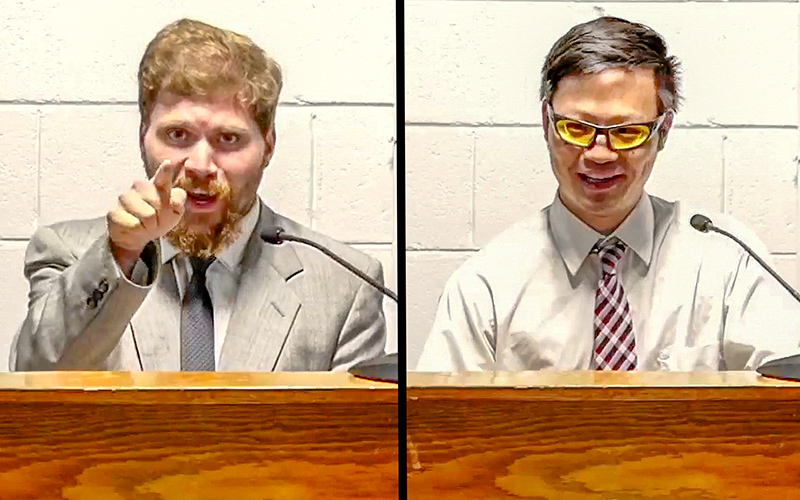
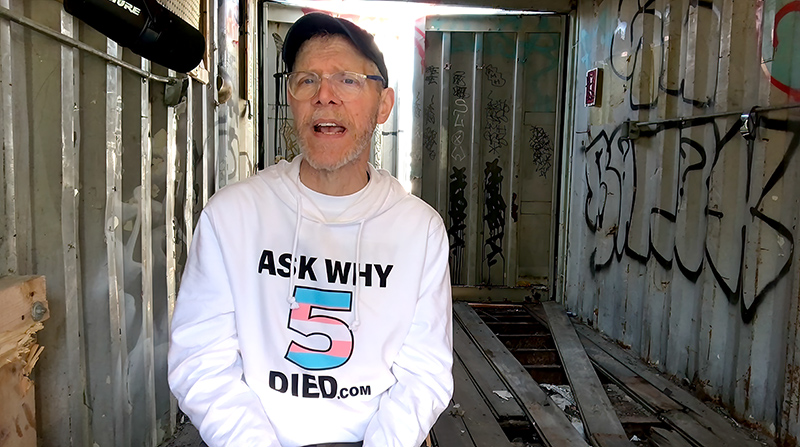
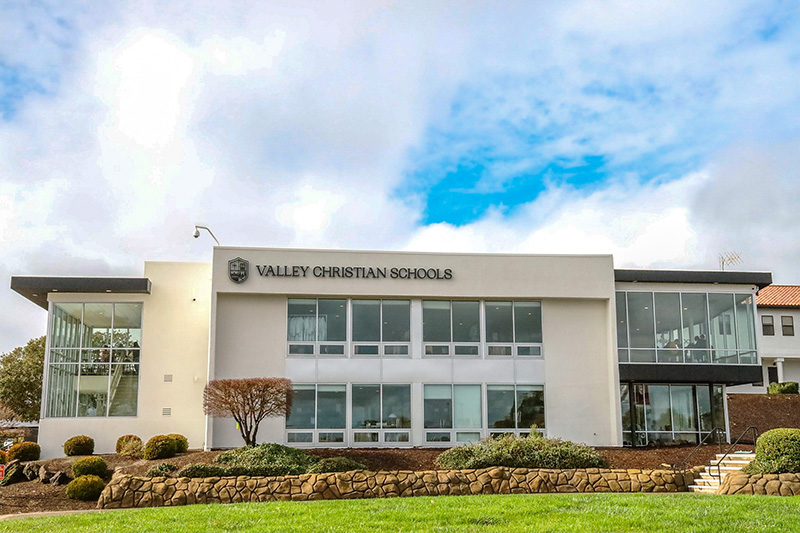













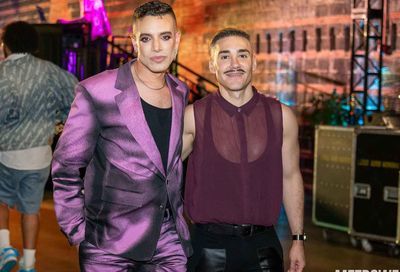
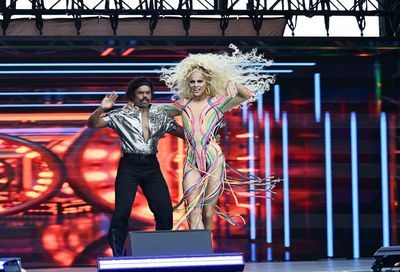

You must be logged in to post a comment.